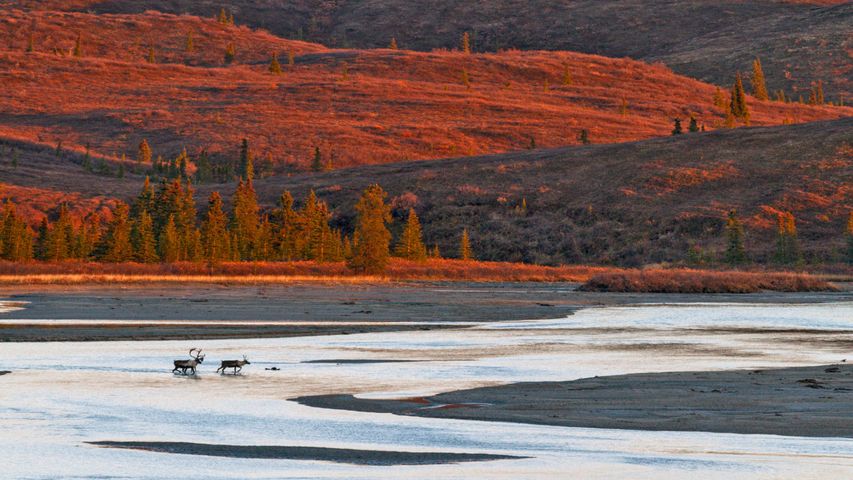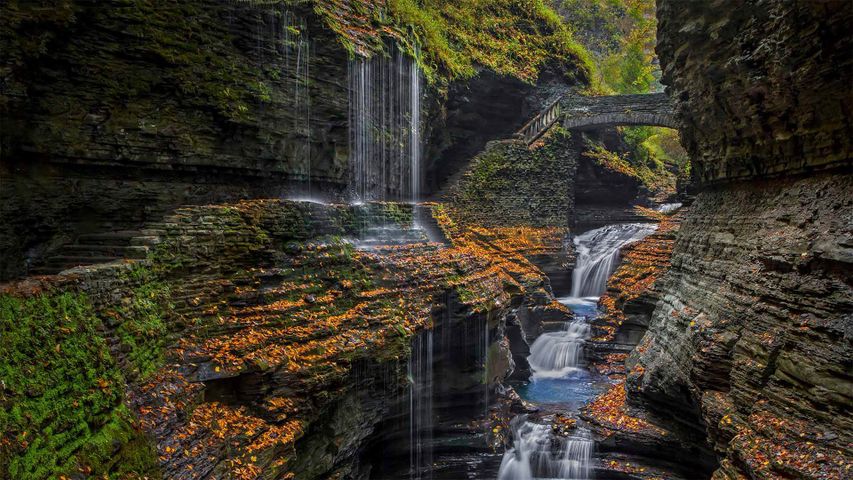The Mackenzie River in Canada emptying into the Beaufort Sea
© Norman Kuring, GSFC/NASA/USGS Landsa
World Rivers Day
It’s World Rivers Day today, a celebration of our waterways which started life as a Canadian event in 2005 but has since branched out to more than 100 countries. Our photo, captured by Nasa’s Earth-imaging Landsat 8 satellite, shows part of the Mackenzie River delta (the wetlands formed as rivers empty water and sediment into another body of water) and the river’s cloudy waters as they flow from Canada and the US state of Alaska into the Beaufort Sea in the Arctic. The Mackenzie River, Canada’s longest river, helps modulate the Arctic climate, as warmer fresh water mixes with colder sea water.
About seven per cent of the fresh water that flows into the Arctic Ocean each year comes out of the Mackenzie and its delta, and much of that arrives in large pulses when inland ice and snow melts. These pulses, known as freshets, carry huge amounts of sediment, much of it from erosion of the Rocky Mountains upstream, which you can see pouring out of the river on today’s homepage.
Related Images
Bing Today Images

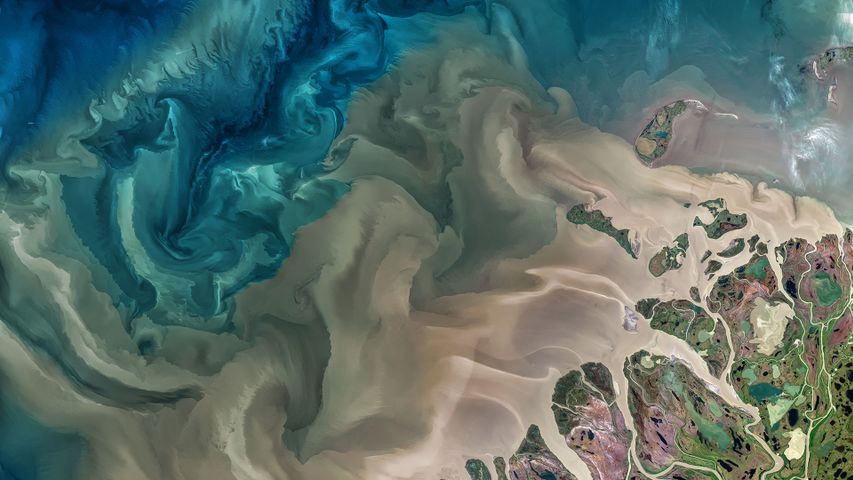
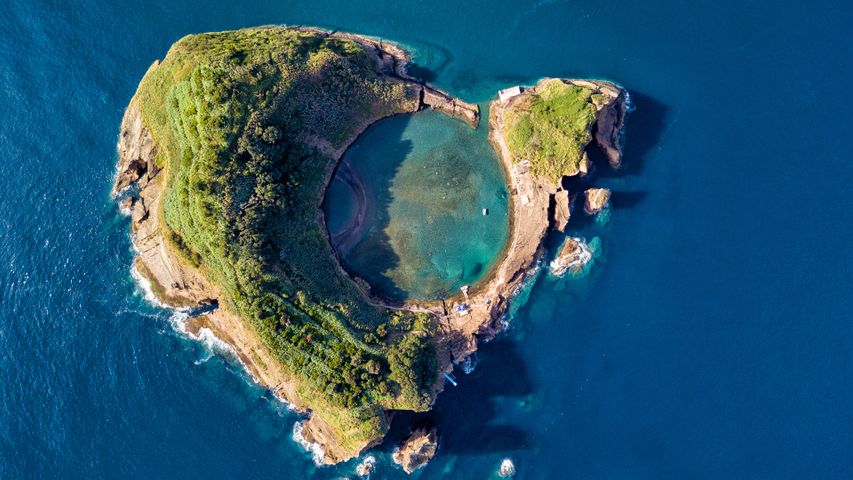 Vila Franca Islet, São Miguel Island, Azores, Portugal
Vila Franca Islet, São Miguel Island, Azores, Portugal
 Mona Vale rockpool, Sydney, Australia
Mona Vale rockpool, Sydney, Australia
 Tea garden at Yangjiatang Village, Songyang County, China
Tea garden at Yangjiatang Village, Songyang County, China
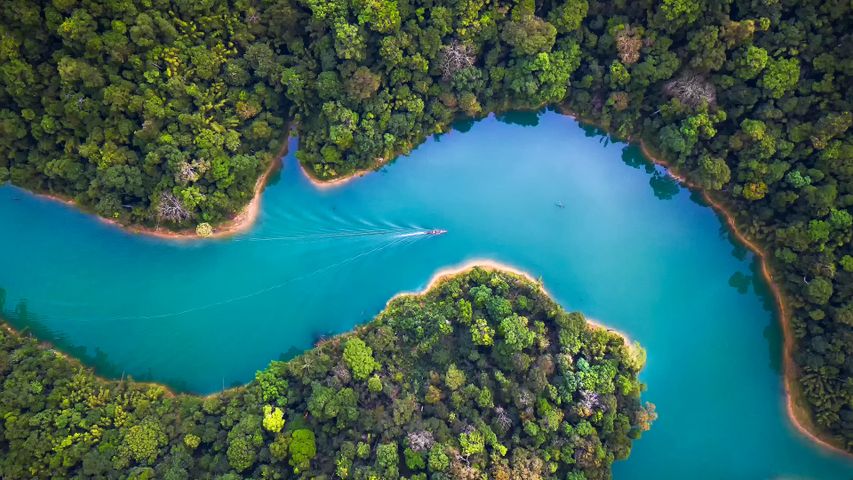 Khao Sok National Park, Surat Thani, Thailand
Khao Sok National Park, Surat Thani, Thailand
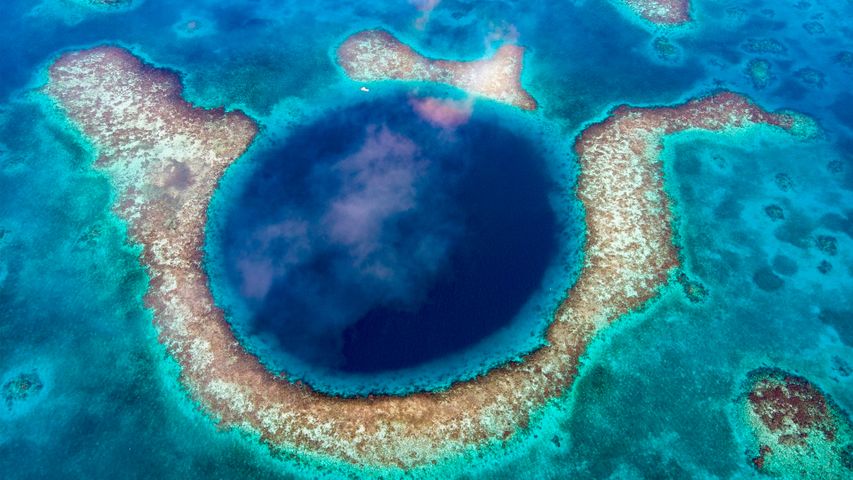 Great Blue Hole, Belize
Great Blue Hole, Belize
 Peggy's Cove Lighthouse, Nova Scotia, Canada
Peggy's Cove Lighthouse, Nova Scotia, Canada
 Fujian Tulou complex of historical and cultural heritage buildings in Fujian province, China
Fujian Tulou complex of historical and cultural heritage buildings in Fujian province, China
 Puerto de la Cruz, Tenerife, Spain
Puerto de la Cruz, Tenerife, Spain


